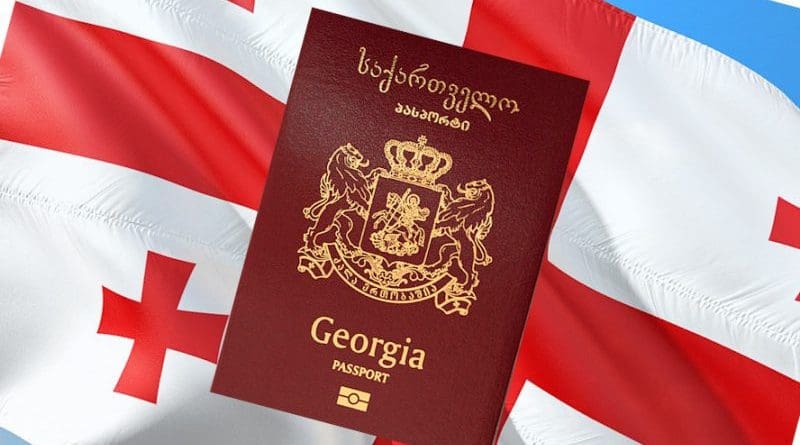Russia Rewards Georgia With Lifting Of Visa Requirement, Renewal Of Direct Flights
By Eurasianet
By Giorgi Lomsadze
(Eurasianet) — Russia has restored visa-free travel for Georgians while lifting a ban on direct flights between the two countries. The moves are widely seen as a Kremlin reward for the Georgian government’s restrained approach on the war in Ukraine, while also serving as tacit recognition that Georgia is an important node of sanctions-busting trade for Russia.
According to a May 10 decree issued by Russian leader Vladimir Putin, Georgians will be allowed to visit Russia for up to 90 days without a visa. The new rules are set to go into effect on May 15. The 90-day limit set by Russia is the same timeframe that Georgians can spend in the European Union without a visa.
Meanwhile, the Transport Ministry in Moscow announced that Russian airlines will operate seven direct flights a week flying between the Russian and Georgian capitals, restoring the connection after a four–year hiatus. In addition, the Russian Foreign Ministry lifted an advisory against Russian citizens traveling to Georgia.
Georgian President Salome Zourabichvili characterized Russia’s actions as a provocation designed to frustrate Georgia’s EU integration ambitions. “Resuming direct flights and lifting visa ban with Georgia is unacceptable as long as Russia continues its aggression on Ukraine and occupies our territory!” Zourabichvili wrote in a Twitter post.
Russia imposed visa requirements on would-be Georgian visitors in 2000. Georgia, however, did not reciprocate at that point, but did tighten travel access for Russians in the wake of the brief Georgian–Russian war in 2008. Those regulations were soon eased, and Tbilisi currently allows Russians to visit visa-free for a year and that period can be easily extended by simply crossing any of Georgia’s international borders and quickly returning. Since the Kremlin launched its unprovoked attack on Ukraine in February 2022, Georgia has been a primedestination for Russians fleeing their homeland to escape political repression or avoid being thrown into the Russian military’s meat-grinder.
Many observers share Zourabichvili’s view that Putin’s decree is an inducement for the Georgian Dream Party-dominated government in Tbilisi to maintain a political course that has seen Georgia drift away from the West recently. The Georgian president, whose powers are largely ceremonial, has emerged as a vocal government critic who casts herself as representing the majority’s will in Georgia.
Public opinion polls in Georgia indicate that an overwhelming majority of the population supports greater integration with Western institutions, especially the EU. The Georgian Dream government, however, has embraced policies and actions that have alienated officials in Brussels and Washington, including a failed attempt to adopt “foreign agent” legislation that would have had a chilling effect on independent media and non-profit-sector activism. The government has likewise not followed the US-EU lead in providing strong support for Ukraine’s war effort.
In a sign of growing US and EU frustration with the Georgian Dream government’s geopolitical ambiguity, Washington imposed sanctions on four Georgian judges in April.
The eased travel rules seem certain to help Georgian-Russian trade. Georgia has been identified as a key conduit for Russia, which has quickly assembled new supply chains to mitigate the impact of Western sanctions. Bilateral trade volume shot up 22 percent during the year-long period after the start of the war in Ukraine, compared to the same timeframe the preceding year. Georgian imports from Russia are also up sharply.
Giorgi Lomsadze is a journalist based in Tbilisi, and author of Tamada Tales.

